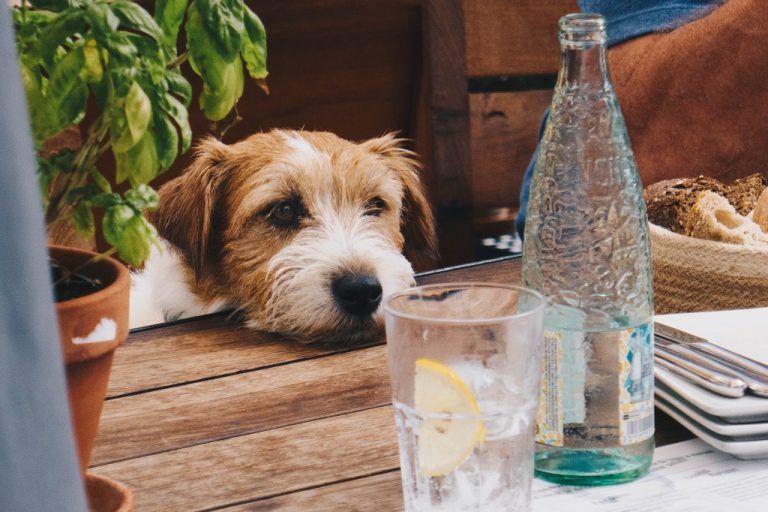Table of Contents [show]
Did you know mammals are dependent upon water to live? This includes water dwelling mammals, such as dolphins. When it comes to the necessity of water, man’s best friend is no exception. The cells found within your puppy’s body require hydration for proper function, just like their human counterparts. Otherwise, you may notice your dog becoming habitually dehydrated, which ultimately leads to the development of a variety of health issues. Some of the problems associated with dehydration in dogs include the breakdown of organ function and, ultimately, their demise.
How Long Dogs Can Live Without Water
As mentioned above, mammals are completely dependent upon water every single day. For dogs especially, access to fresh, clean water is important, regardless of the outdoor temperature. However, with that being said, it is crucial for dogs to have water in anything above 80 degrees Fahrenheit in larger amounts, more frequently throughout the day. If your four-legged friend dwells within your home, and enjoys access to air conditioning, they are more likely to require water only every few hours. Although they can survive in this environment, the best practice is to maintain a level of clean drinking water in their bowl at all times.
Some pet parents become frustrated with leaving water out, simply because their dog struggles with potty training indoors. This highlights the importance of sticking to a schedule, especially in regard to water. This goes to great lengths in preventing unwanted potty accidents, by adhering to a 15 minute rule after eating or drinking. If you’d like, many families take their dog for a walk once they’ve finished their meal, to encourage bathroom practices outdoors.
How Much Water is Necessary?
This is nearly impossible to answer correctly, as the amount and frequency of water availability is completely dependent upon your dog, their breed, personality, family situation, and much more, including indoor or outdoor temperatures, and health concerns. Generally speaking, you can offer 1 ounce of water per pound of weight for a healthy dog of average size and weight. In the event your dog is happy to drink more, you are better erring on the side of caution and allowing them to drink more than advised.
Additionally, there are other factors that play a role in the amount of water available to your pup. If they suffer from kidney diseases, it’s imperative that they are provided with adequate amounts of clean water, free from bugs, leaf litter, and algae, especially if they are in the outdoors. In order to stay healthy, dogs instinctively drink the amount of water necessary to stay healthy. When the water in your dog’s bowl is being consumed regularly, there is absolutely no need to measure their intake, especially if they are healthy overall.
However, if your dog struggles with various health problems, your vet may advise a watering schedule. In this case, it’s important to adhere to the schedule provided by their veterinarian team in order to avoid additional issues. Whenever your dog is not on a restrictive water plan, though, it’s safe to provide plentiful amounts of water. If this is what you practice every day, don’t make any changes to your schedule.
Is My Dog Getting Enough Water?
Aside from measuring out a specific amount of water for your dog to consume, you can watch for additional signs regarding overall hydration. Most dogs, when they are well-hydrated, will exhibit good skin elasticity, bright eyes, moist gums, and good amounts of energy. Additionally, their urine should be odorless, and clear to pale yellow in color. Dehydrated dogs, on the other hand, may exhibit sunken or dull eyes, thick and sticky saliva, darkened gums, and dry skin with reduced elasticity. Their urine will also smell, and be darker in coloration than a hydrated pup (unless they have kidney diseases).
If you are noticing any of the aforementioned signs of dehydration, consider calling your vet immediately. In the meantime, begin offering your dog small amounts of water to support their system, especially while you await the advice of your veterinarian.

